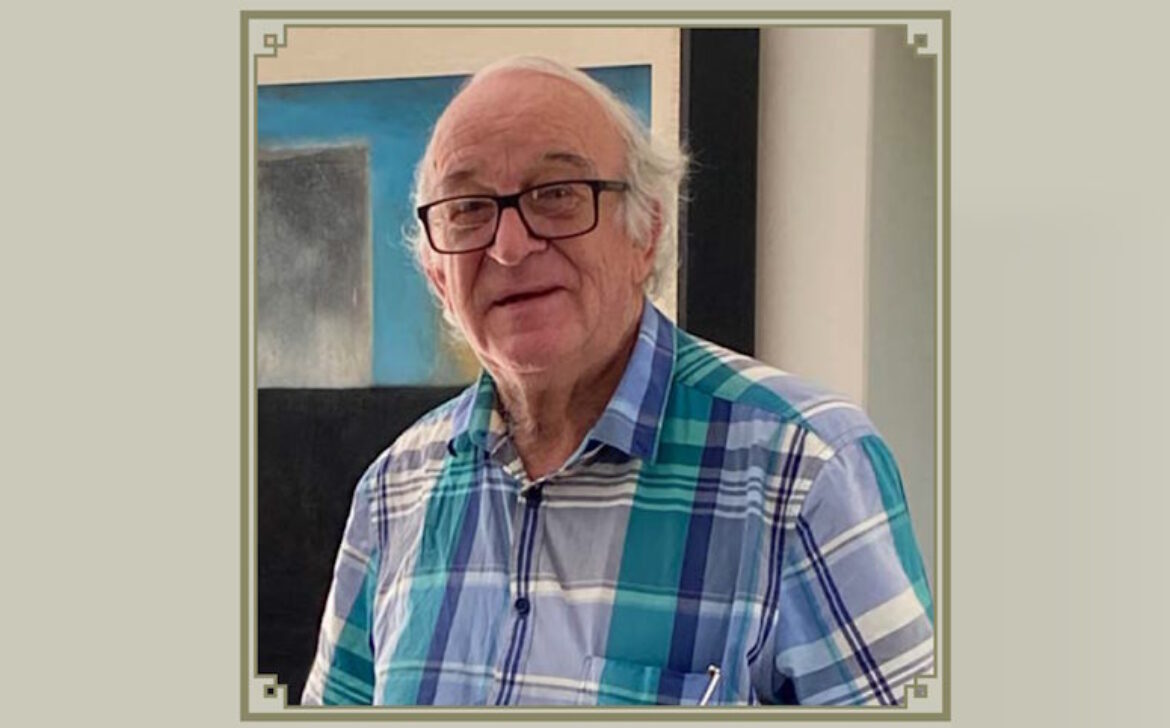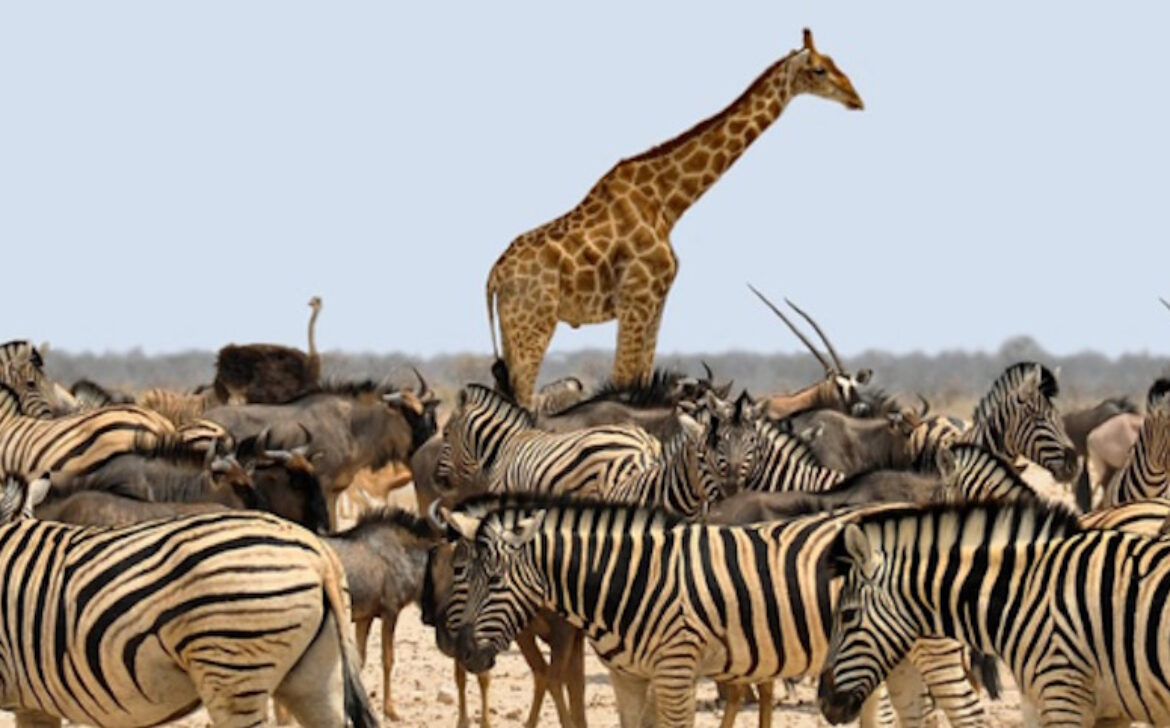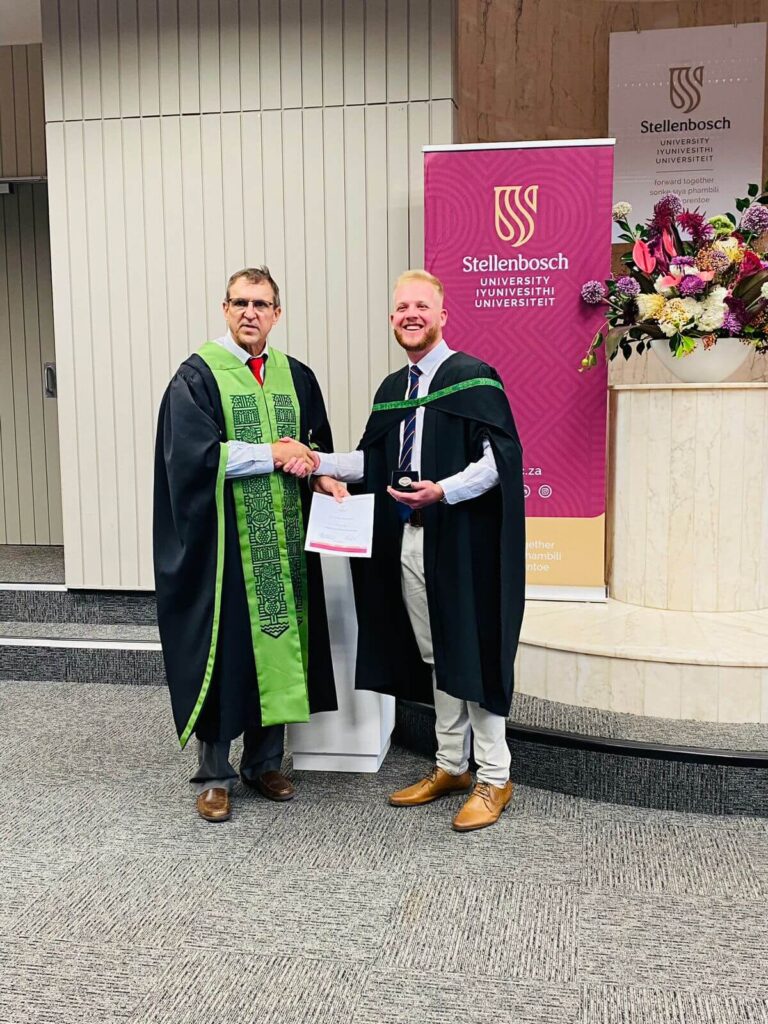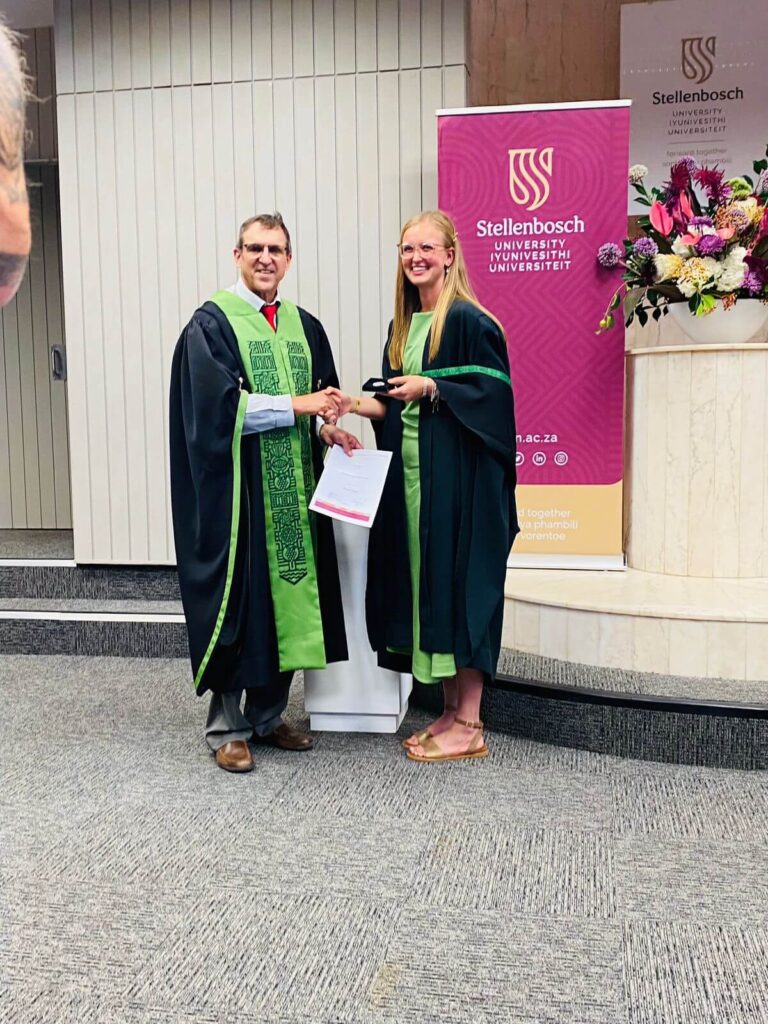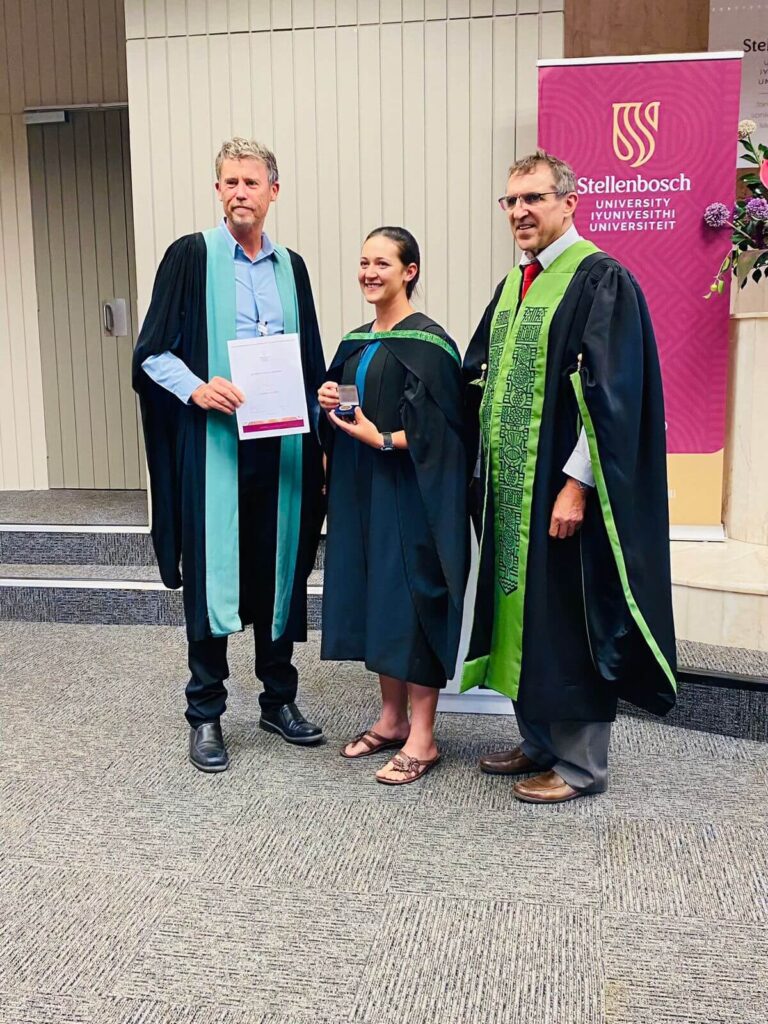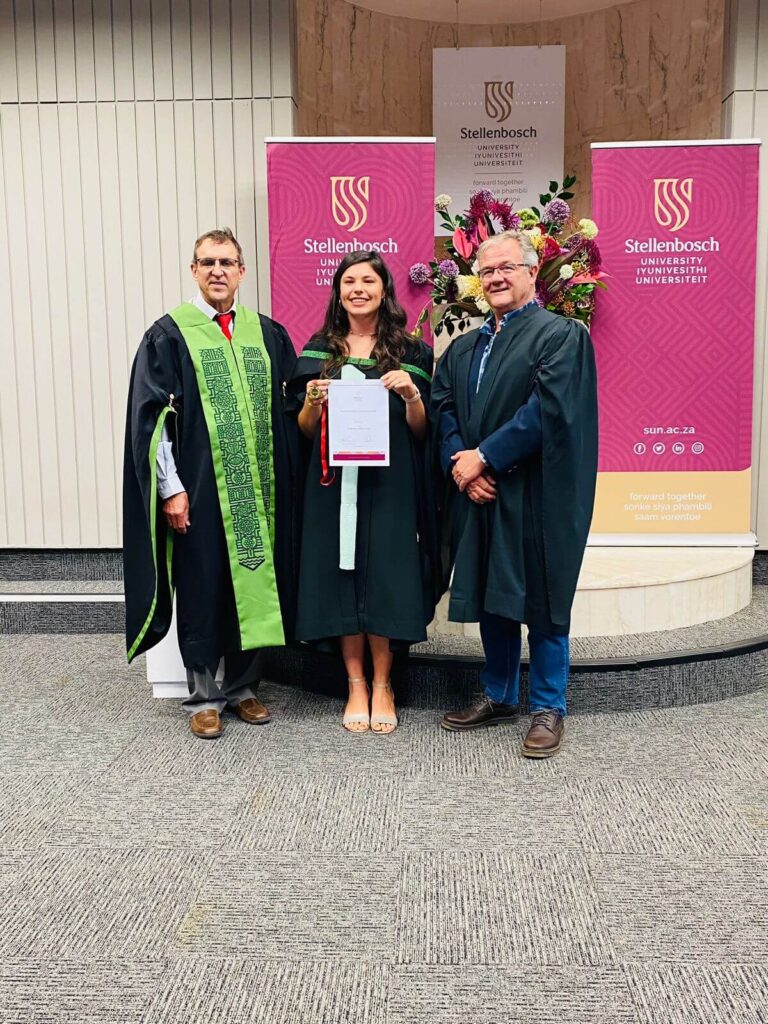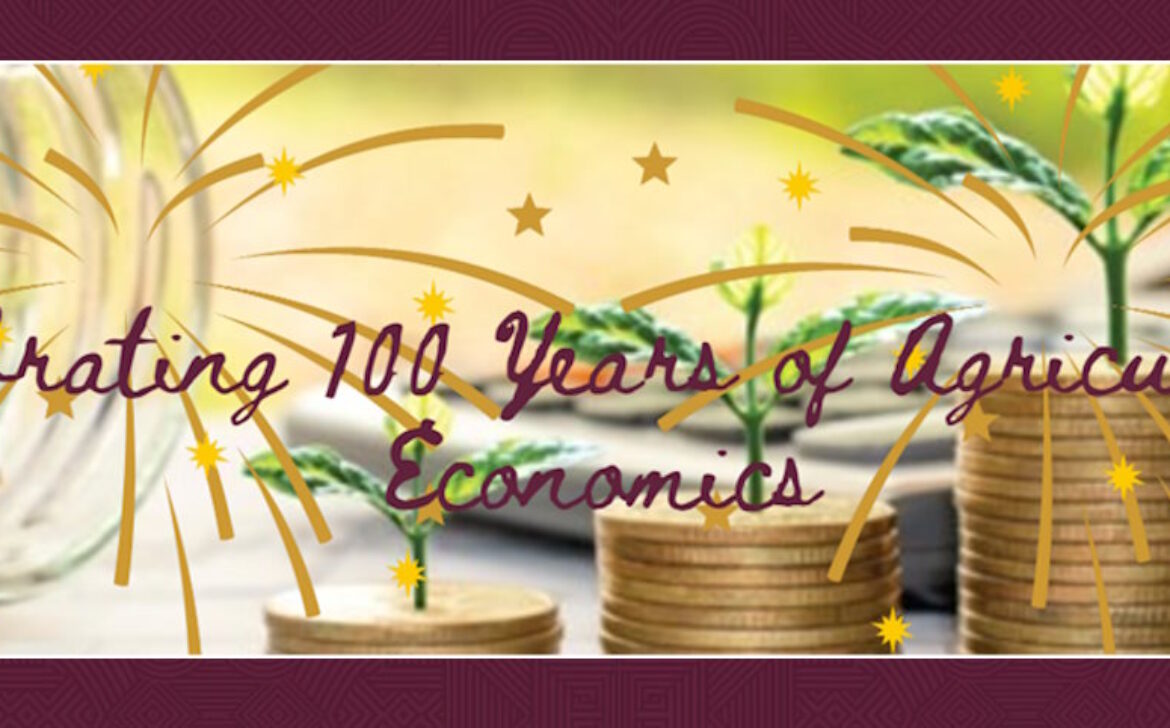Prof. Clint Rhode is sedert die begin van 2025 die nuwe voorsitter van die Departement Genetika. As ‘n opkomende akademiese leier en gesiene navorser is Prof. Rhode ʼn bekende in die Genetika dissipline. Sy aanstelling as voorsitter van die Departement, wie in 2025 hul Eeufeesviering gedenk, beloof om die gevestigde fokus op uitnemende onderrig, navorsing en dienslewering nog verder uit te bou en van krag tot krag te sien gaan.
Met ‘n PhD in Genetika, registrasie as ‘n Professionele Natuurwetenskaplike en as President van die Suid-Afrikaanse Genetika Vereniging (SAGV), fokus prof Rhode hoofsaaklik op Dier-genetika, met ‘n spesialisasie in populasie- en kwantitatiewe genetika. Hierdie fokusgebiede is uiters belangrik in die bevordering van telingsprogramme en komplekse genetiese eienskappe.
’n Passie vir Wetenskap en Leierskap
Op ʼn vraag na die oorspong van sy belangstelling in die veld van genetika, het Prof. Rhode opgemerk dat sy eie nuuskierigheid en liefde vir wetenskap sy loopbaanpad help bepaal het.
“Ek was nog altyd nuuskierig en het gedurig ‘waarom’ gevra. Aanvanklik wou ek ‘n veearts word, maar het gou besef dat ‘n loopbaan wat konstante ontdekking en uitdaging bied, beter by my persoonlikheid pas. Genetika het my bekoor omdat dit wiskunde en biologie kombineer -twee vakgebiede wat ek regtig geniet.”
Hoewel hy sy pad na genetika in beskeie terme beskryf, kan sy indrukwekkende akademiese rekord -met cum laude-prestasies in al sy grade – nie onderskat word nie. Prof Rhode se nederigheid en lojaliteit aan sy akademiese tuiste is kenmerke wat hom ideaal posisioneer vir die leierskaprol wat hy nou inneem.Die primêre fokus van sy visie vir sy ampstermyn is die versterking van die akademiese gemeenskap en navorsingsuitnemendheid—veral ná die uitdagings van die COVID-19-pandemie.
“Een van my hoofdoelwitte is om ‘n omgewing te skep waar navorsers en studente verbind voel, geïnspireer word, en deel voel van iets groter as hulleself.“
Die Departement Genetika aan die Universiteit Stellenbosch is een van slegs twee onafhanklike genetika-departemente in Suid-Afrika, wat studente die geleentheid bied om ‘n nagraadse graad in genetika as ‘n selfstandige dissipline te verwerf. Terwyl baie universiteite genetika met biochemie of mikrobiologie geïntegreer het, bly Stellenbosch toegewyd aan die opleiding van spesialiste in genetika eerder as algemene bioloë -’n verantwoordelikheid wat Prof. Rhode met trots voortsit.
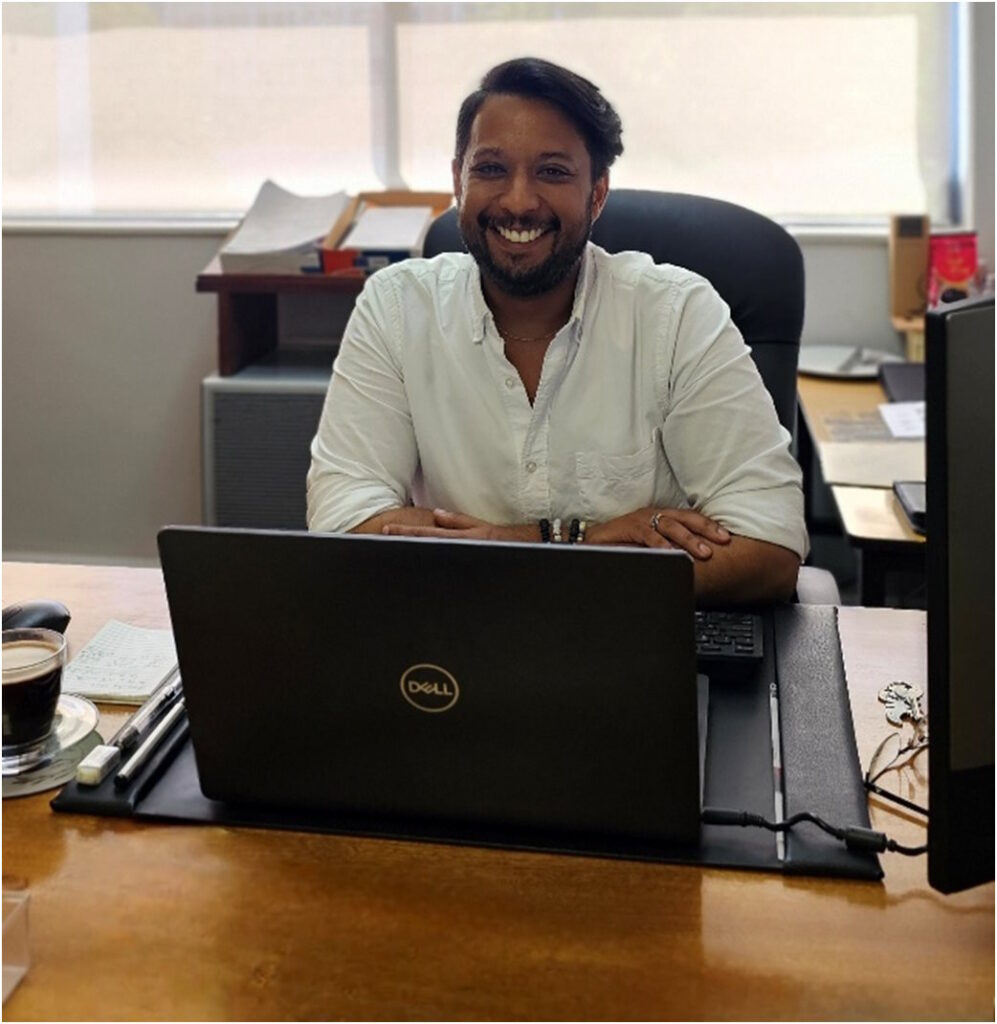 Geleenthede en Uitdagings in ’n Veranderende Veld
Geleenthede en Uitdagings in ’n Veranderende Veld
Prof. Rhode beskryf die departement se geleenthede en uitdagings as ‘n “tweesnydende swaard”. Terwyl verandering ʼn gegewe is in enige omgewing is, bied dit ook ‘n geleentheid vir vernuwing en sodoende vooruitgang te verseker.
“Veranderingbestuur is altyd ‘n uitdaging, maar dit gee ons ook die kans om ons koerste herevalueer en relevant te bly in ‘n vinnig ontwikkelende veld. Die sleutel lê daarin om te verseker dat almal die belangrikheid van hierdie veranderinge verstaan en toegewyd is in die langtermyn sukses van die omgewing.“
Sy verbintenis tot innovasie is duidelik en bevestig dat die departement steeds ‘n toonaangewende speler in genetiese navorsing, onderrig en bedryfsamewerking sal bly.
Baanbrekersnavorsing in Genetika
Prof. Rhode se bydraes tot genetika strek veel verder as die lesingsaal. Een van sy belangrikste navorsingsprojekte was die volledige volgordebepaling van die eerste en enigste Suid-Afrikaanse klipkous-genoom (of perlemoen, soos dit plaaslik bekend staan), ’n spesie wat ’n deurslaggewende rol in akwakultuur en marinebewaring speel.
“Deur die genetiese samestelling van perlemoen te verstaan, kan ons metodes ontwikkel om hulle vinniger te laat groei, hul populasieste beskerm en te verseker dat hulle kan aanpas by veranderende oseaanomstandighede.”
Verder het sy navorsing oor die swart venstervlieg, ‘n spesie met beduidendetoepassings in volhoubare dierevoer en afvalvermindering, internasionale erkenning verwerf. Sy werk ondersoek hoe genetika grootskaalse telingsprogramme beïnvloed, wat voedselproduksie doeltreffender en omgewingsvriendeliker maak. ’n Getuienis van sy deurslaggewendeinvloed in die veld was sy onlangse uitnodiging as hoofspreker by die “Insect Genetic IMProvement, IMPlementation, and IMPact (Insect-IMP)” werkswinkel in Athene, Griekeland. Sy plenêre sessie, “Population and Functional Genomics of Black Soldier Fly Mass Rearing”, het nie net sy kundigheid ten toon gestel nie, maar ook Stellenbosch Universiteit en Sub-Sahara Afrika op die wêreldverhoog verteenwoordig.
Hierdie gesogte uitnodiging bevestig sy status as ’n leier in toegepaste genetika en beklemtoon die departement se rol in voorpuntnavorsing oor voedselveiligheid en volhoubare landbou.
Inspirasie vir diewetenskaplikes van die toekoms
Buite sy navorsing bly mentorskap en studentebetrokkenheid ’n fokus van Prof. Rhode se akademiese filosofie. Hy beskou studente as die ambassadeurs van die departement, en hul sukses is van kritiese belang vir die departement se impak.
“Ons rol as akademici is nie net om te doseernie; ons moet inspireer. Studente wat hier studeer, dra ons nalatenskap voort en wys die wêreld waarom genetika by Stellenbosch van wêreldgehalte is.“
Vir jongmense wat ‘n loopbaan in genetika oorweeg, beklemtoon hy die groeiende belangrikheid van rekenaarvaardighede en aanpasbaarheid in die vinnig ontwikkelende wetenskaplike landskap.
“Genetika verander vinnig. As jy van biologie hou, maar ook belangstel in statistiek, KI en rekenaarwetenskap, is hierdie veld vir jou. Dit is waar die toekoms van mediese wetenskap, landbou en biotegnologie gevorm word.”
’n Tuiste vir Innovasie en Visie
Prof. Rhode beskou die Departement se Eeufeesvierings vanjaar ʼn ideale kans vir nadenke én vir vooruitskouing.
“Dit is ’n tyd om ons prestasies te vier, maar ook om te beplan vir die volgende 100 jaar. Hoe bly ons relevant? Hoe dryf ons genetika verder? Dit is die vrae wat ons toekoms sal rig.“
Met sy wetenskaplike kundigheid, leierskap en toewyding aan mentorskap, word daar uitgesien na die visie die toekoms van genetika aan Stellenbosch Universiteit.
Leier met ’n Dapper Visie
As jou departementele skrywer het ek die voorreg gehad om Prof. Rhode se reis van PhD-student tot Navorser, Lektor, Senior Lektor, Professor en nou Departementshoof te aanskou. As ’n leier uit eie geledere het hy ’n diepgaande begrip van die departement se dinamika, wat hom in ’n unieke posisie plaas om voort te bou op ‘nryk nalatenskap. Ek sien met groot afwagting uit na hoe sy visie en leierskap die toekoms van genetika aan die Universiteit Stellenbosch sal vorm.


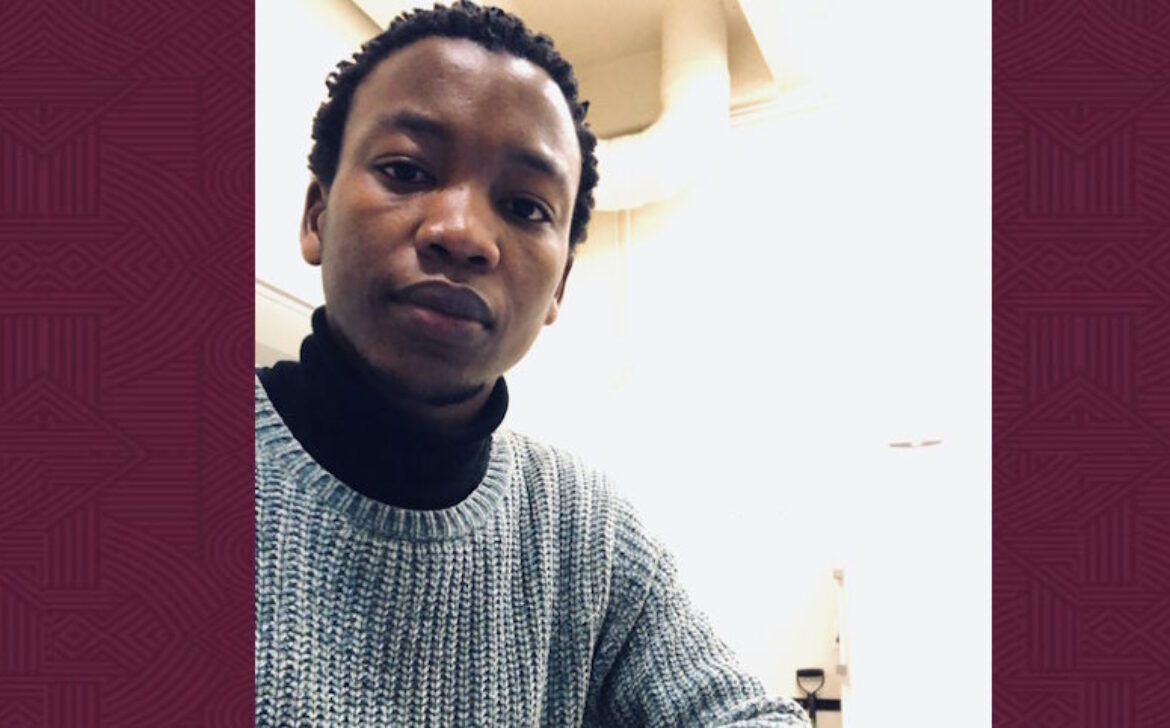
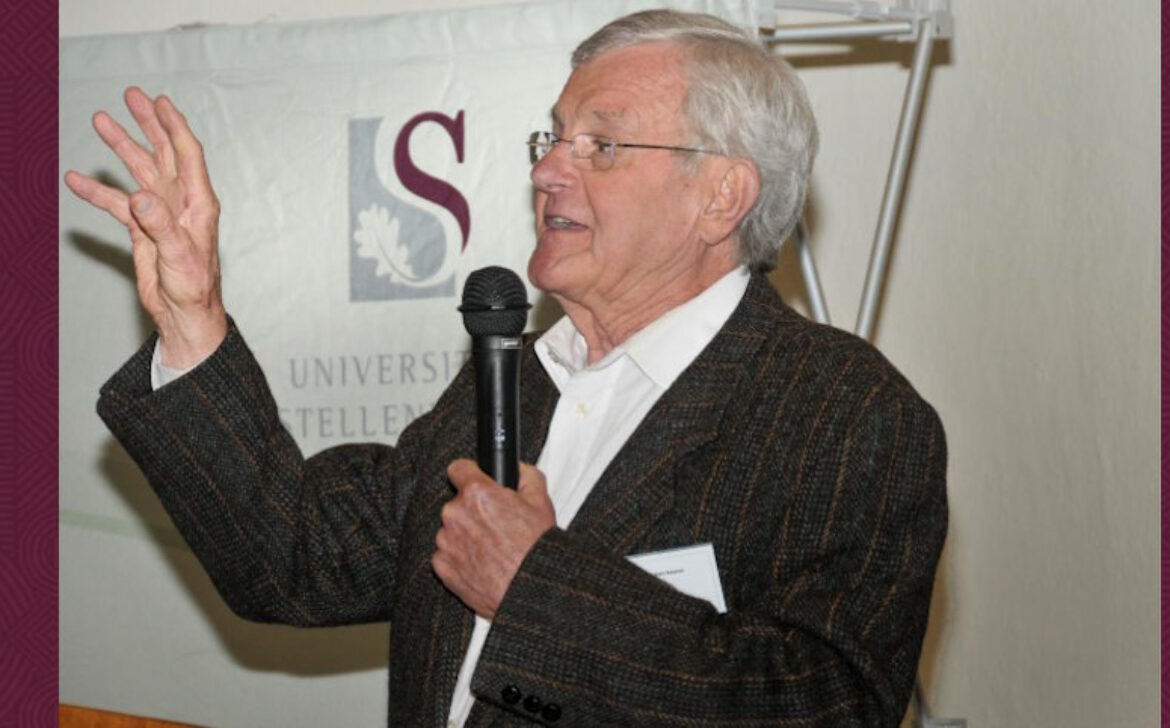
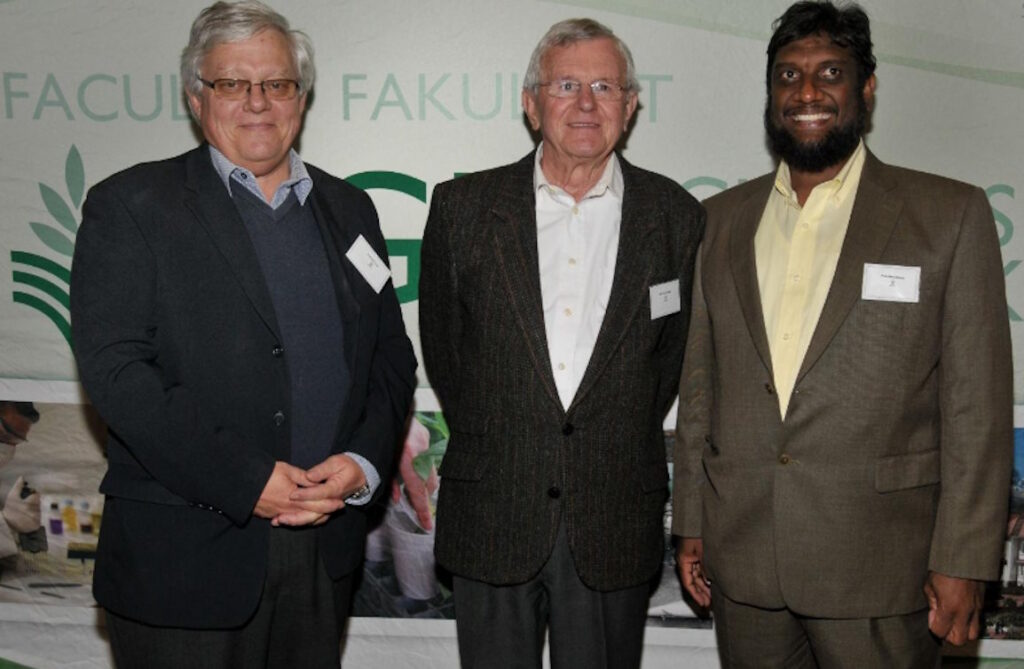
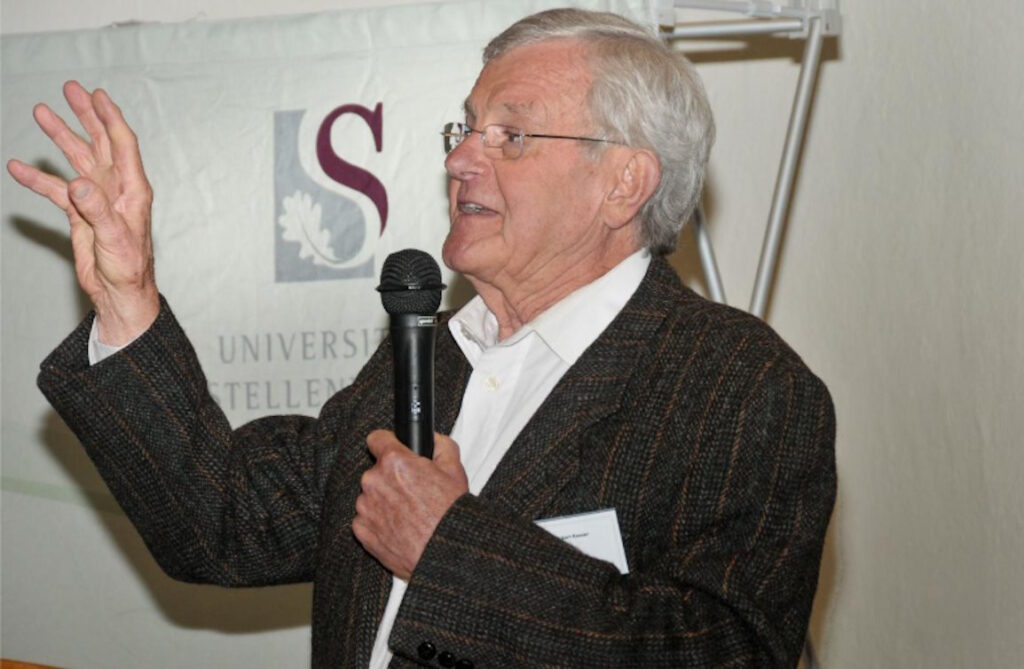
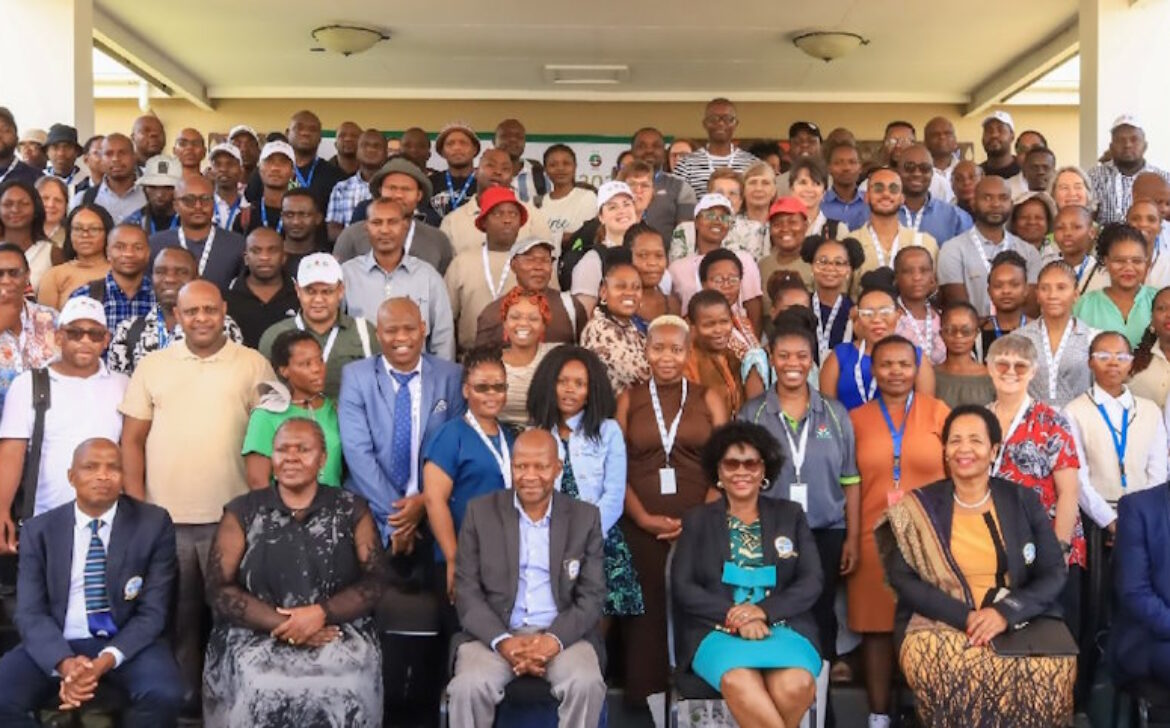
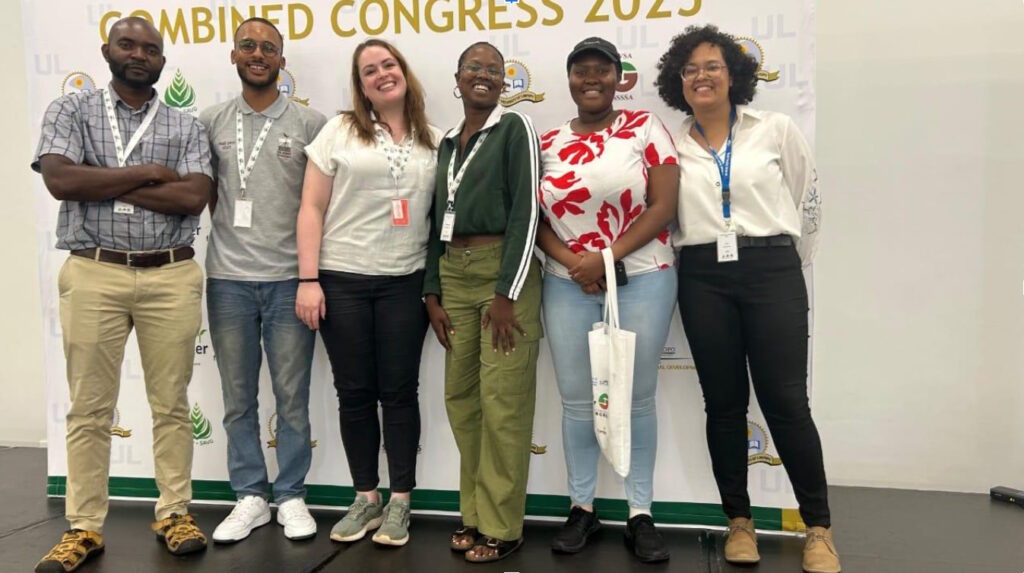
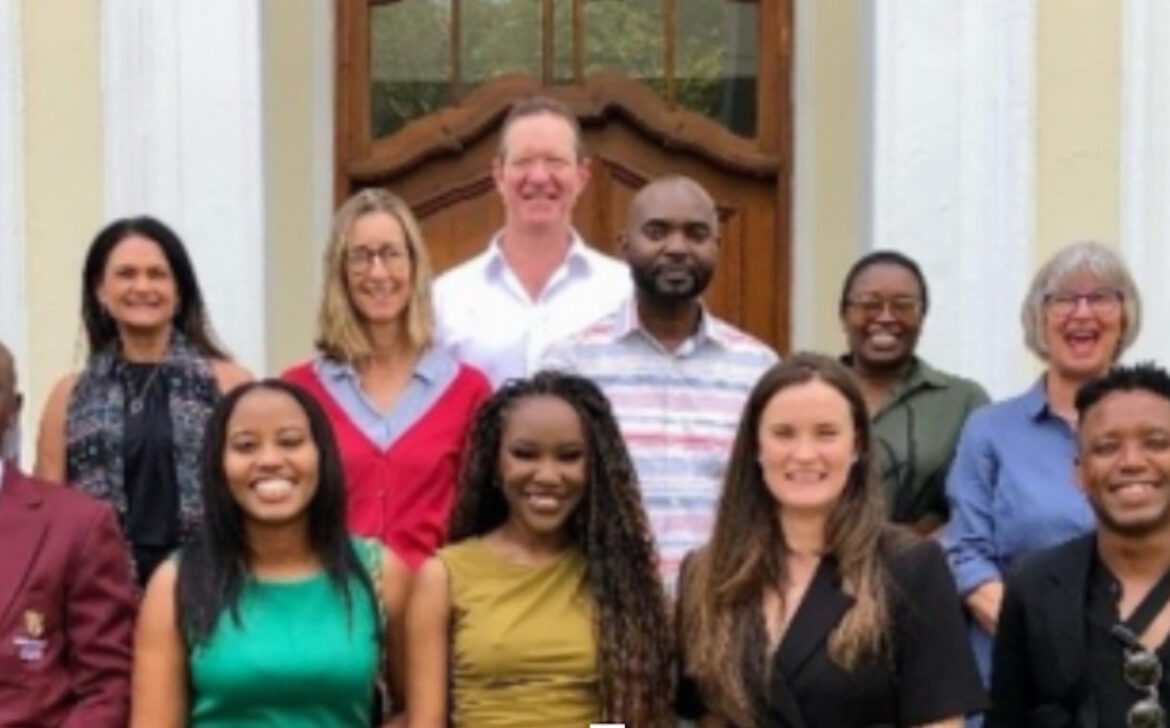
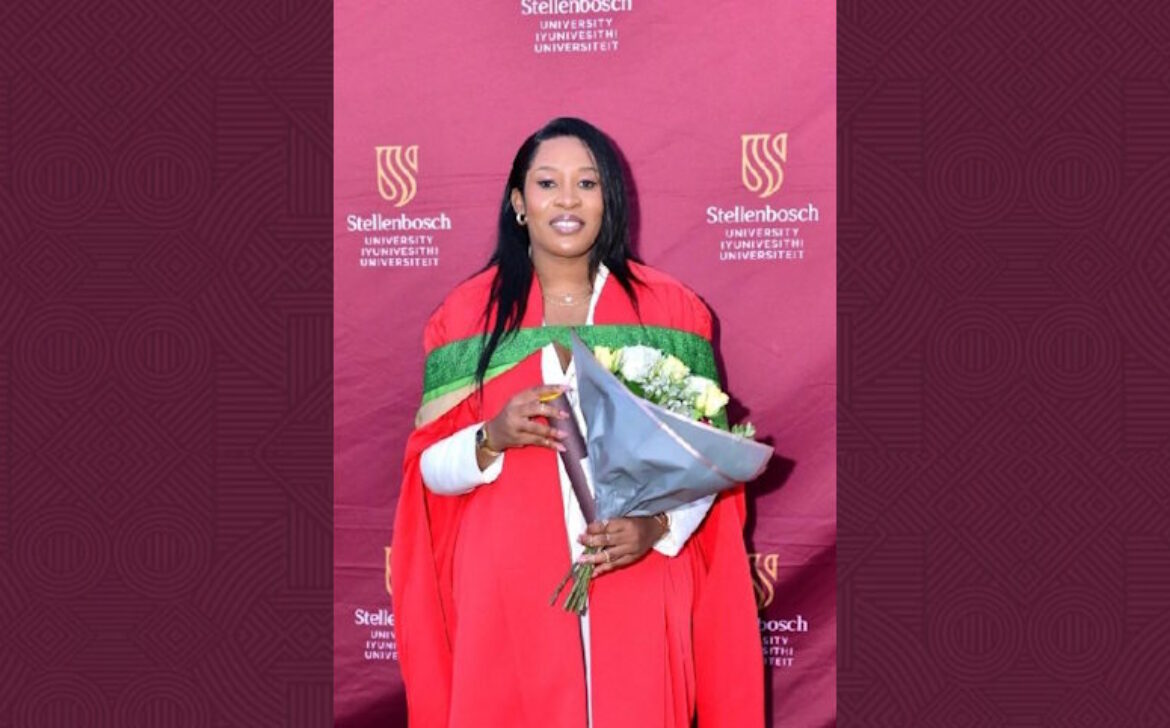
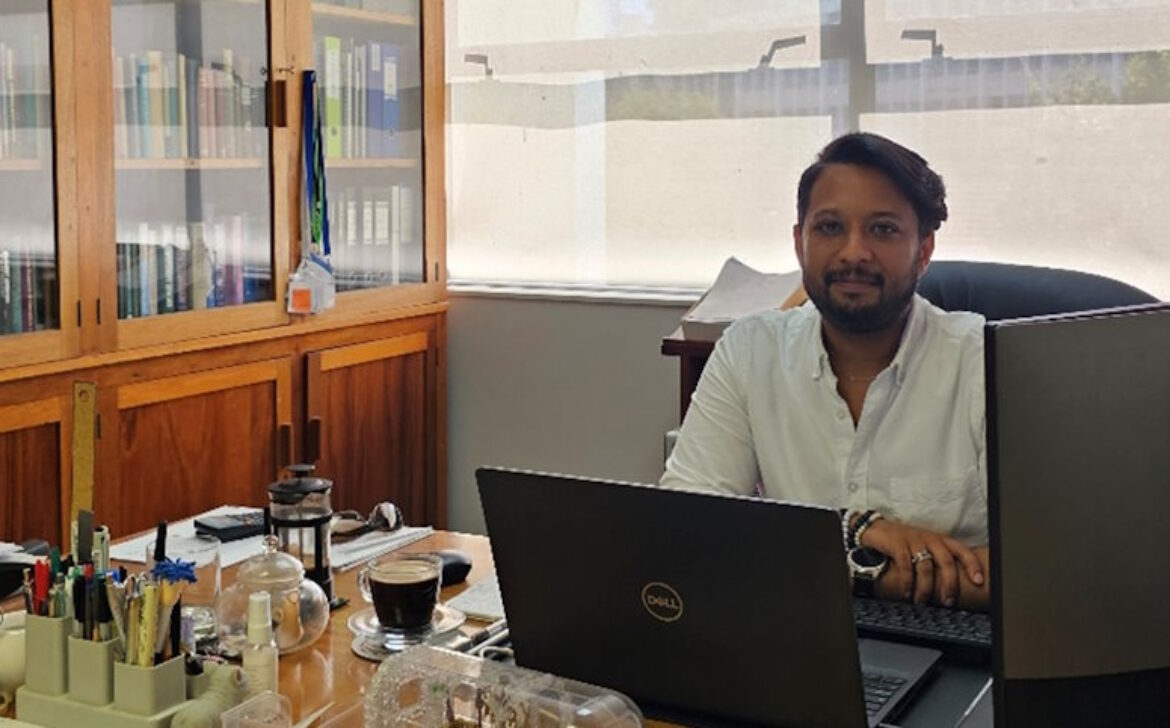
 Geleenthede en Uitdagings in ’n Veranderende Veld
Geleenthede en Uitdagings in ’n Veranderende Veld